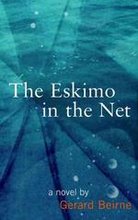Great Writing and the Appreciation of Analogy
Mapping and analogy. Go back and re-read if you have forgotten. This is important stuff, Dead Beat does not lie.
Remember Hofstadter is concerned with developing computer models of how human thinking works. You see this is the core of it. We can talk about form in writing. We can 'instruct' in the craft - characters, setting, line, imagery, rhythm and so on, but how do we utilize it? What is happening in the minds of writers?
Why do two people with the same understanding of form produce different 'qualities' of work?
What makes a great poet great? We know what is happening on the page - we can see formally what has occurred? But what happened in the mind to allow this to occur? What processes were at work? And if we could model them, could we then 'teach' them?
Could we become better writers?
Dead Beat says, you bet!
Keep in mind that 'the great poet' probably does not really know what is occurring in his or her mind.
So analogy. Here is what Hofstadter says: One should not think of analogy-making as a special variety of reasoning (as in the dull and uninspiring phrase “analogical reasoning and problem-solving,” a long-standing cliché in the cognitive-science world), for that is to do analogy a terrible disservice. After all, reasoning and problem-solving have (at least I dearly hope!) been at long last recognized as lying far indeed from the core of human thought. If analogy were merely a special variety of something that in itself lies way out on the peripheries, then it would be but an itty-bitty blip in the broad blue sky of cognition. To me, however, analogy is anything but a bitty blip — rather, it’s the very blue that fills the whole sky of cognition — analogy is everything, or very nearly so, in my view."
So what is analogy and how can we utilize it to improve our writing abilities:?
Stay with Dead Beat, he has Hof''s ear.











No comments:
Post a Comment